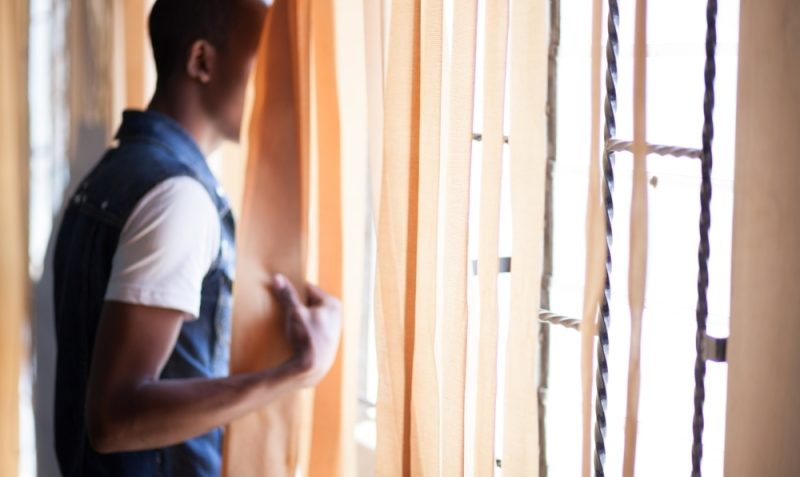Kenya: Stories of a hidden LGBT population from Uganda
 © Corrie Wingate
© Corrie Wingate
Reflections on a visit to LGBT organisations and Ugandan asylum seekers in Kenya, who receive support from the Rapid Response Fund
Ross Reeves is an Advisor: Rapid Response Fund at the Alliance.
An hour’s drive out of Nairobi, we found ourselves shaking hands with members of an organisation which was set up by and for a lesbian, gay, bi, trans & intersex (LGBTI) group of Ugandan asylum seekers and refugees.
Gathered in a sparsely furnished lounge, and with formalities out of the way, we were treated to a series of highly entertaining drag performances of traditional Ugandan songs and dances, followed by a moving play expressing the many issues that LGBTI face if diagnosed as HIV-positive.
This inspiring group of 15 young Ugandan asylum seekers had met in the capital and sought out the support of the Rapid Response Fund (the Fund) in order to rent a compound in a semi-rural area, following the increasing hostility they had experienced in Nairobi. Unable to work due to their immigration statuses, the group confined themselves to the safety of their home; the trans women of the group never left the compound for fear of drawing unwanted attention. Those who did venture out did so fearfully.
Of the 29 countries in which the Fund issues grants, a significant number of grants have been issued to Kenyan organisations, and so a visit there provided an opportunity to review our due-diligence processes and see how the funds were being spent. It was also a chance to provide technical assistance where needed and – where appropriate – gather case studies that evidence the impact that the Fund has had on the lives of beneficiaries.
A significant number of the grants that have been issued in Kenya have been to support LGBTI asylum seekers from Uganda, who not only face stigma and discrimination because of their sexuality or gender identity, but are also dealing with the additional challenges associated with their immigration status.
Many asylum seeking LGBTI are engaging in sex work in order to survive, increasing their exposure to sexually transmitted infections (STIs), including HIV
We learned from one such group that a simple activity such as buying groceries could lead to being ‘outed’ by the local community, as an assumption has developed among some Kenyans that English-speaking people fleeing Uganda are likely to be LGBTI. This assumption and the subsequent negative outcomes are further compounded by the frustrations of the general Ugandan migrant population that define as heterosexual. Angry at the additional stigma that they were facing due to their refugee identity becoming synonymous with homosexuality, these Ugandan migrants have also become hostile towards the fellow LGBTI asylum seekers.
For asylum seekers, even staying within their homes to try to avoid hostilities could prove dangerous, as neighbours often become suspicious of how they have earned money for rent, given that they appeared to be home all day, every day. While many tried to conceal the true reason for their presence in Nairobi by purporting to be students, few members of the local community buy this narrative for long. This causes relentless pressure upon the psycho-social well-being of such individuals, and appeals for support were requested by the majority of asylum seekers that the Rapid Response team spoke with.
During our encounters with these asylum seeker/refugee groups and Kenyan organisations, we also heard of the increased risk of HIV that they face because of their status as asylum seekers. We learned that many asylum seeking LGBTI are engaging in sex work in order to survive, increasing their exposure to sexually transmitted infections (STIs), including HIV.
Even when individuals do access free ARVs, it is reported that the severe shortage of money for food means that many feel forced into selling their medication
Risk of HIV infection is increased by other factors too. UNHCR provides free antiretroviral drugs (ARVs) to HIV-positive refugees, but many are reluctant to go to the clinic where these are administered for fear of the stigma and reprisals that could follow from being ‘outed’ as HIV-positive by association with the medical centre in question. Even when individuals do access free ARVs, it is reported that the severe shortage of money for food means that many feel forced into selling their medication.
Another small LGBTI organisation we met had reason to believe that HIV prevalence was disproportionately high among LGBTI people living within a refugee camp in rural border areas, owing to their itinerant lifestyles. The organisation requested Rapid Response funding to carry out research into the camp’s LGBTI population, in turn supporting their advocacy efforts to achieve more targeted medical and nutritional support.
Despite hearing these stories of hardship and experiences of discrimination, it was clear that many brave and inspiring activists and organisations alike were working intensely to ensure that LGBTI asylum-seekers were supported wherever possible.
The Rapid Response Fund provides grants for interventions that respond to new or worsening situations that impact HIV services provided to MSM or the LGBT community. It is co-funded by the Elton John AIDS Foundation.
This article was written as the International HIV/AIDS Alliance, before we changed our name to Frontline AIDS.
Tags
KenyaLGBTRapid Response FundUganda


